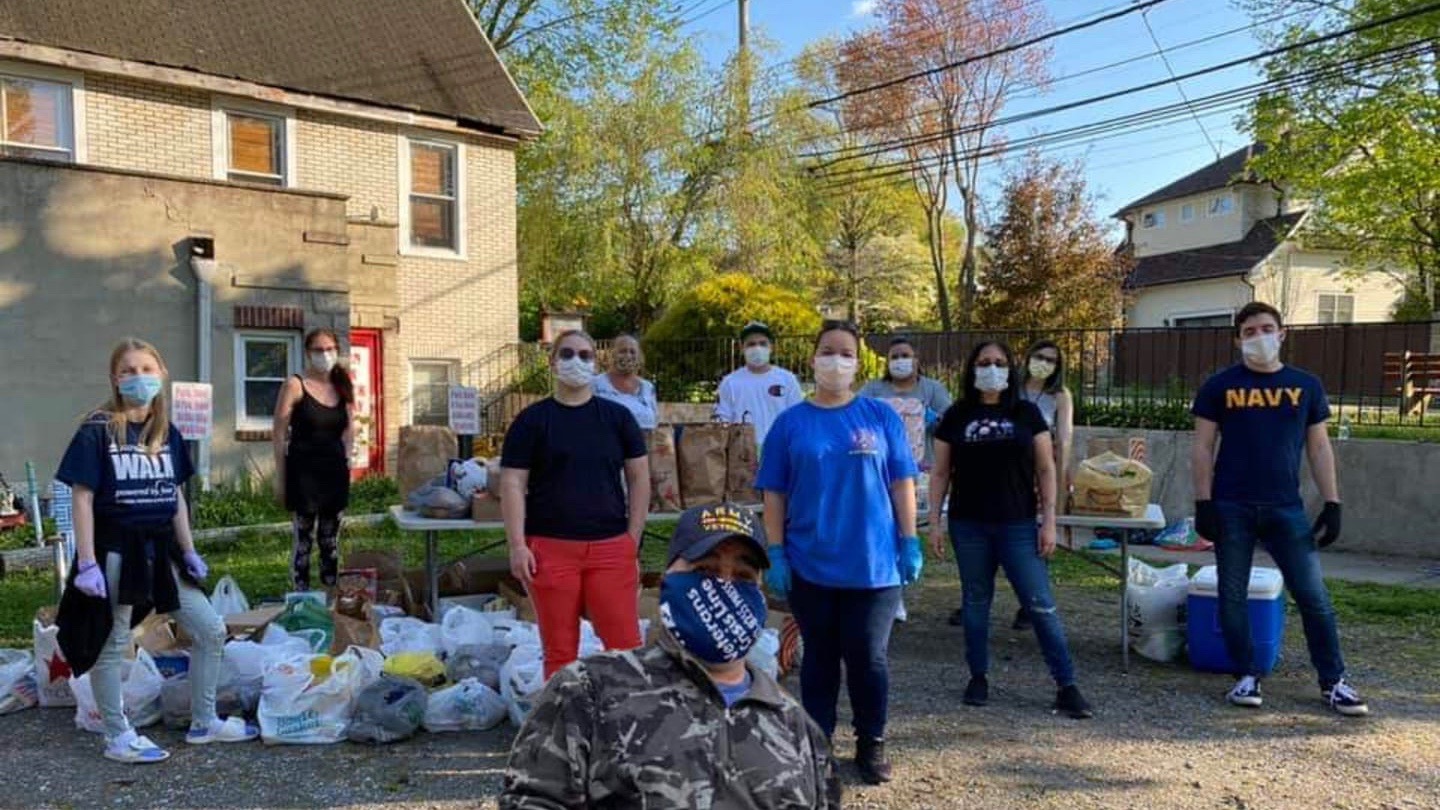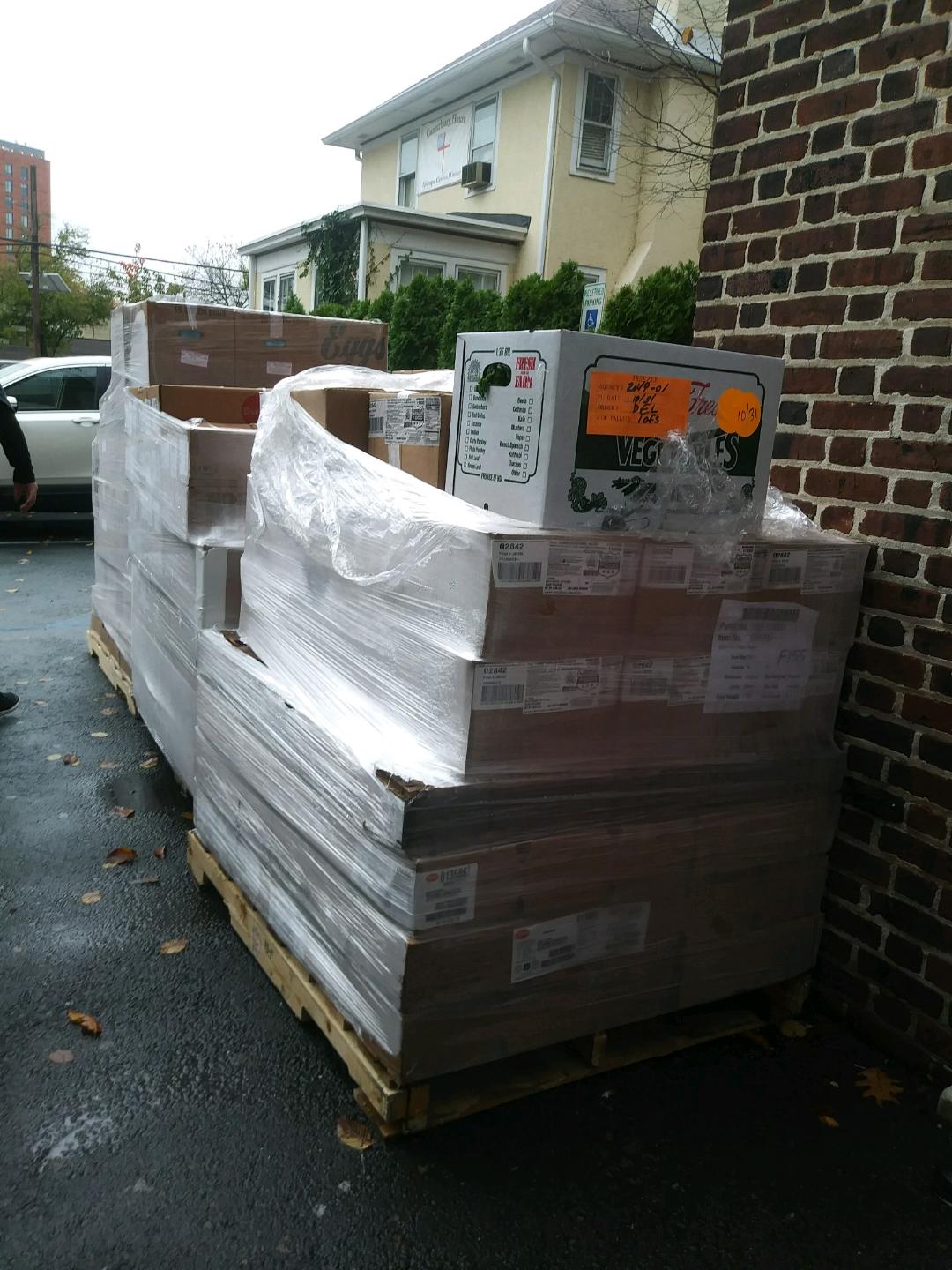Local churches often serve as a place for community and support. During times of crisis, this care grows all the more vital, with churches serving as the hands and feet of Jesus on the frontlines of tragedy, loss, and struggle.
As COVID-19 has spread across the U.S., many churches have increased their community engagement even as their doors closed.

South Shore Food Pantry
In response to this pandemic, World Renew has made a commitment to come alongside these churches. Through your generosity, we are offering grants to support churches that are serving the most vulnerable members of their communities with the very hope of Jesus.
Last month, World Renew gave out $40,000 in grants to eight CRC and RCA churches. These churches belong to many of the areas in the country that have been hardest hit by the pandemic, from New York City to the Navajo Nation in New Mexico. Confronted by desperate need, they have responded to the crisis in a variety of ways—from helping children continue their education remotely to providing meals for first responders.
One of the most pressing issues facing all of these communities is food insecurity. As people are laid off from their jobs or unable to leave their homes, lack of access to healthy food threatens many. The Neighborhood Church in Providence, Rhode Island, saw this challenge as an opportunity to support two groups at the same time. Rather than choosing between helping the vulnerable or supporting the economy, The Neighborhood is doing both. They’re partnering with local restaurants to provide meals for people living on the streets, who are struggling even more as food pantries are shut down.
With additional grant money the Neighborhood Church received from World Renew, the church will be able to continue supporting their community in a holistic way.

In other areas, existing food distribution programs run through local churches are expanding to meet increasing needs. Bethel Christian Reformed Church is located in the Navajo Nation, one of areas that COVID-19 has hit the hardest. When the church had to close its doors for regular services, Pastor John Graydanus partnered with other local churches and nonprofits to focus their efforts on food distribution.
“We team up and try to get food to those places that are being overlooked,” he said. They’ve been serving more people than ever before in recent weeks, sometimes close to 1,000 people in one day. With the grant money from World Renew, the church plans to continue increasing that number. “Without the church, the program, we would not have another food bank in the community.”
Hesed Community Church is located in another COVID-19 hotspot: Detroit, Michigan. Their work with community leaders in the three Detroit neighborhoods where their ministry houses are located has prioritized those families who’ve been hurt the most. With the goal of offering comprehensive support, the church and community have come together to provide food distribution, connect kids to the technology and internet access needed for remote learning, and help families as other requests come up, from medical bills to funeral expenses.
Mark VanAndel, co-pastor of Hesed, says that the church is also paying attention to the mental health struggles that many are facing as they lose jobs and loved ones.
“The communal trauma of COVID-19 has brought to the surface some of these ongoing counseling needs, so we’re trying to address that with partnerships with local Christian counselors.”
Despite so many hardships, church communities keep coming together in new ways. One woman in a Hesed neighborhood, a single mother of seven children, lost her job when COVID-19 first hit. The church helped provide the family with food and technology for the kids to keep learning. A couple of weeks ago, as VanAndel was searching for someone to help get their community garden ready for spring, he got a call from a neighbor. The woman was in the garden with her seven kids, weeding and planting crops—giving back to the neighborhood. VanAndel hadn’t asked her to help; rather, the family’s actions were “a result of kind of this communal effort towards loving and caring for each other” that he’s seen the church build in their community.
